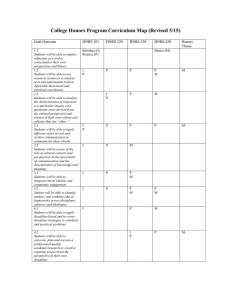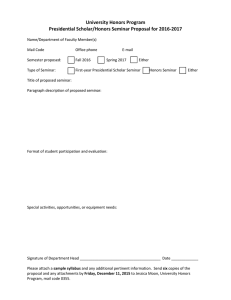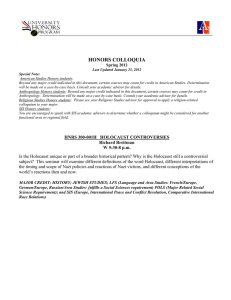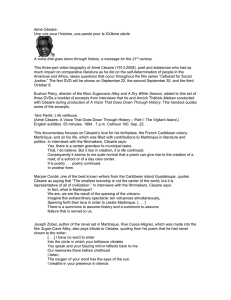Honors 220 Course Offerings Spring 2014 HNRS 220-01 Honors International issues Seminar
advertisement
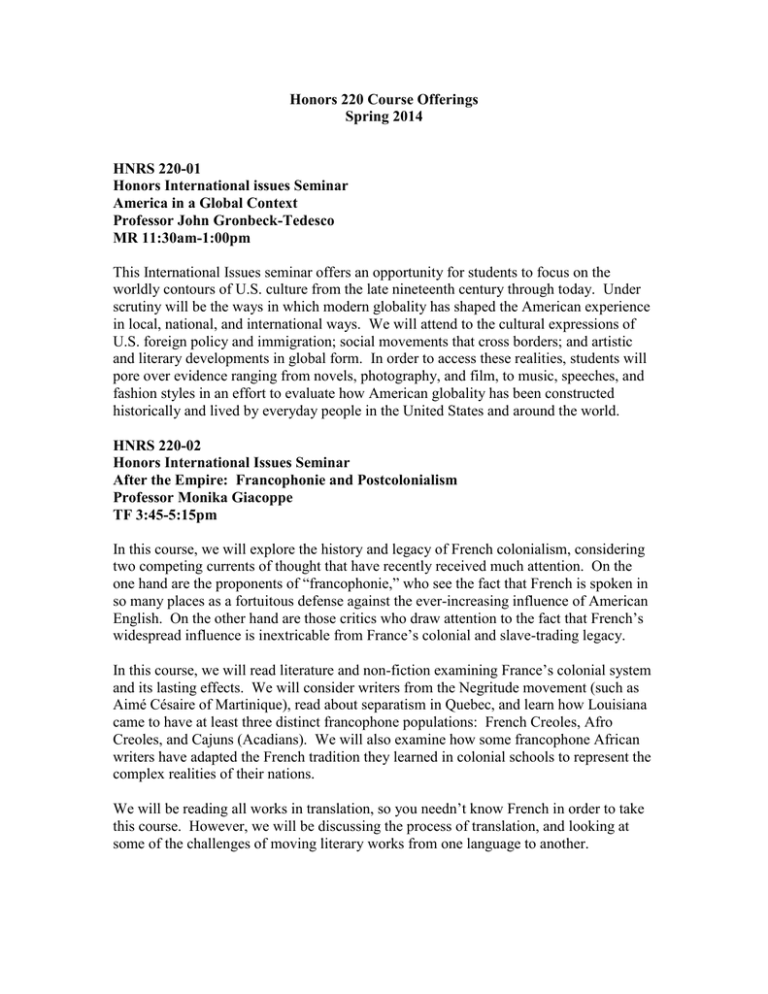
Honors 220 Course Offerings Spring 2014 HNRS 220-01 Honors International issues Seminar America in a Global Context Professor John Gronbeck-Tedesco MR 11:30am-1:00pm This International Issues seminar offers an opportunity for students to focus on the worldly contours of U.S. culture from the late nineteenth century through today. Under scrutiny will be the ways in which modern globality has shaped the American experience in local, national, and international ways. We will attend to the cultural expressions of U.S. foreign policy and immigration; social movements that cross borders; and artistic and literary developments in global form. In order to access these realities, students will pore over evidence ranging from novels, photography, and film, to music, speeches, and fashion styles in an effort to evaluate how American globality has been constructed historically and lived by everyday people in the United States and around the world. HNRS 220-02 Honors International Issues Seminar After the Empire: Francophonie and Postcolonialism Professor Monika Giacoppe TF 3:45-5:15pm In this course, we will explore the history and legacy of French colonialism, considering two competing currents of thought that have recently received much attention. On the one hand are the proponents of “francophonie,” who see the fact that French is spoken in so many places as a fortuitous defense against the ever-increasing influence of American English. On the other hand are those critics who draw attention to the fact that French’s widespread influence is inextricable from France’s colonial and slave-trading legacy. In this course, we will read literature and non-fiction examining France’s colonial system and its lasting effects. We will consider writers from the Negritude movement (such as Aimé Césaire of Martinique), read about separatism in Quebec, and learn how Louisiana came to have at least three distinct francophone populations: French Creoles, Afro Creoles, and Cajuns (Acadians). We will also examine how some francophone African writers have adapted the French tradition they learned in colonial schools to represent the complex realities of their nations. We will be reading all works in translation, so you needn’t know French in order to take this course. However, we will be discussing the process of translation, and looking at some of the challenges of moving literary works from one language to another.

